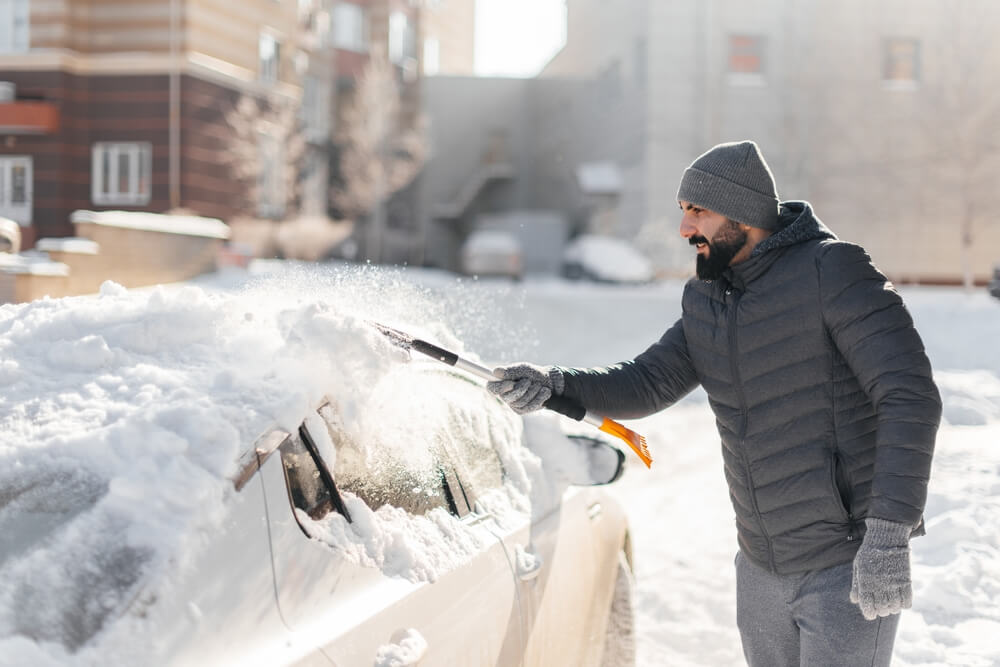9 Tips for Winterizing Your Car

As the chill sets in and the days grow shorter, it’s time to get your vehicle winter-ready. Winter weather can be tough on your car, with freezing temperatures, snow, ice, and road salt all putting a strain on its performance. But don’t worry! Winterizing your car doesn’t have to be difficult—by following these tips for winterizing your car, you can make sure your car is prepared to handle whatever winter throws its way. And while you’re getting your car ready for the cold, don’t forget about your car insurance especially in colder states like Colorado or Illinois. Having the right coverage can make all the difference if winter weather causes any unexpected issues. Let’s break it down and get your car ready for the cold season!
The Importance of Winterizing Your Vehicle
Winter car care is all about making sure your vehicle is prepared to face the harsh elements of the cold months. From making sure your engine is running smoothly to preparing your tires for slippery roads, each step helps you stay safe and avoid costly repairs. This is why learning how to winterize a car is so important—it’s the difference between being stuck on the side of the road in a snowstorm or cruising through the winter months with ease.
1. Switching to Winter Tires: The When and Why
When learning winter car maintenance, one of the first things to consider is winter tires. Unlike all-season tires, they have a special tread design for better grip on snow and ice, and a softer rubber compound that stays flexible in freezing temperatures. In many cold weather states, winter tires are mandatory for safety on slippery roads.
When the thermometer dips below 45°F (7°C), it’s time to swap out your regular tires for winter ones. Winter tires aren’t just for heavy snow—they’re essential for all types of cold weather driving. And don’t forget to check tire pressure regularly, since it can drop in the cold, affecting tire performance.
2. Keeping Your Engine Healthy with Seasonal Oil Changes
Cold weather can make your engine work harder to start, especially if the oil is too thick. Thick oil can struggle to flow through the engine in freezing temperatures, making it harder for your engine to fire up. To avoid this, make sure to switch to a winter-grade oil with a lower viscosity, which is better suited for chilly conditions.
Be sure to change your oil before the first frost. This ensures that your engine runs smoothly when the temperature drops and keeps everything lubricated as it should be.
3. Antifreeze Levels and Concentration Checks
Your engine needs to stay warm in the winter—yes, even when it’s freezing outside! Antifreeze plays a crucial role in regulating the temperature of your engine, preventing it from freezing and causing damage. Before the cold snap hits, check your antifreeze levels and make sure the mix is at the right concentration—usually a 50/50 ratio of antifreeze to water. This ensures that your car will be prepared for everything from early-morning frosts to full-on snowstorms.

4. The Role of Windshield Wiper Fluid and Blades in Winter
Visibility is key when driving through snowy or icy conditions, and you’ll rely on your windshield wipers more than ever during the winter months. Make sure your wiper fluid reservoir is full and contains a winter-grade fluid that won’t freeze in low temperatures. If your wipers are streaking, skipping, or making noise, it’s time to replace them.
Winter-specific wiper blades are also a great investment. They’re designed to handle the harsh elements and prevent snow and ice buildup. Don’t forget other safety equipment for visibility, such as ensuring your headlights and brake lights are clear and functioning, to improve your visibility in stormy, low-light conditions.
5. Defogging Systems: Ensuring a Clear View
Winter can leave your windows fogged up in an instant, reducing visibility and making driving unsafe. That’s where your defogging and defrosting systems come in. Before you head out, ensure that these systems are working properly, especially the air conditioning and heater. These will help clear fog from your windshield quickly, so you can keep your eyes on the road.
A simple tip? Clean your windows inside and out to prevent dirt and oil buildup, which can make fogging even worse.
6. Testing Your Battery Before the Cold Sets In
Cold temperatures can take a toll on your car battery, especially if it’s already showing signs of wear. A weak battery can leave you stranded when you need it the most. Before the temperatures drop, test your battery to check its charge, and look for any corrosion around the terminals. If your battery is a few years old or not performing well, now’s the time to replace it.
To be extra prepared, grab a portable jump starter so you’re never caught off guard if your battery dies during a cold snap.
7. Headlights and Brake Lights: Brightness Matters in the Dark Months
With fewer daylight hours and more inclement weather, keeping your headlights and brake lights in top shape is essential. The dim, gloomy days of winter mean your lights are more important than ever for visibility. Check your headlights for any cloudiness or dirt buildup and make sure they’re properly aligned. If any bulbs are out, replace them ASAP.
Don’t forget to check your brake lights too, keeping your car visible to other drivers in snowy conditions is a key part of staying safe on the road.
8. Regular Washing to Combat Salt and Grime Build-Up
Salt is great for melting ice, but not so great for your car’s finish. The salt and grime that accumulates on your vehicle’s exterior can cause rust and corrosion over time. To avoid this, wash your car regularly throughout the winter to remove the buildup. Pay extra attention to the undercarriage, wheel wells, and other spots where salt tends to accumulate.
A pre-winter wax can help protect your car’s paint and make it easier to wash off the road salt and grime as the winter goes on.
9. Get A Free Quote from InsureOne and Save on Car Insurance
While winterizing your car will help keep it in great shape through the cold season, it’s just as important to have the right insurance coverage to protect yourself in case something goes wrong. Whether you’re dealing with icy roads or a snowstorm, InsureOne has quality car insurance options to keep you covered during the winter months. When you are ready for the best automobile coverage, get a quote online. You can also pick up the phone and give us a quick call at 800-836-2240. Finally, feel free to visit an InsureOne office near you.


